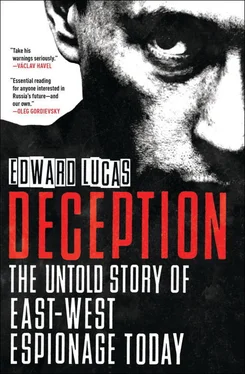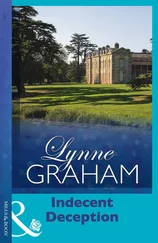On 9 August Mr Magnitsky demanded a meeting with Mr Prokopenko, complaining that his health was at risk because of ill treatment. On 11 August he followed it up with a second complaint demanding immediate medical attention. On 19 August his lawyers complained again, both to Mr Prokopenko and to the chief investigator in the case, Oleg Silchenko, demanding an ultrasound examination. On 25 August, after Mr Magnitsky had spent a sleepless night in agony, the lawyers made an urgent complaint demanding a medical examination and surgery for cholecystitis and pancreatitis – the latter disease resulting from lack of treatment of the former. Following a meeting with Silchenko, on 13 October 2009, Mr Magnitsky wrote the following witness statement:
I believe that [Interior Ministry Lieutenant Colonel Artyom] Kuznetsov and other law enforcement officers in conspiracy with him could be involved in the theft of Rilend, Makhaon, Parfenion and the subsequent theft of 5.4bn roubles from the State Treasury and were extremely interested in suppressing my activity relating to assisting my client in investigating the circumstances connected with these criminal offences. This was the reason for my unlawful criminal prosecution being carried out by investigator Silchenko. I believe that with Silchenko’s participation or with his tacit approval, inhuman conditions were created for me in the detention centre, which humiliate human dignity. While in custody, I have been transferred five times to four different detention centres. I am tired of counting the cells to which I have been transferred innumerable times. I am denied medical assistance. On many occasions, for artificial and unjustifiable reasons, my mother’s and wife’s visits were prohibited, as well as telephone conversations with my little children. While in custody, situations have been created for me where I was deprived of the right to have a weekly shower, to watch television, to use a refrigerator, and simply to live under normal conditions, to the extent they can be ‘normal’ in a detention centre. I am convinced that such intolerable conditions are being created for me with my investigators’ full knowledge. I am convinced that the only possibility to stop this humiliating treatment is for me to accept false accusations, to incriminate myself and other persons. [16] p Mr Magnitsky’s lawyer, Dmitri Kharitonov, also says that on repeated occasions Silchenko offered to release him if he would incriminate Mr Browder.
Far from being intimidated by his treatment, on 16 October 2009 Mr Magnitsky reiterated his allegations in greater detail. That sealed his fate. On 12 November another farcical pre-trial hearing brought a curt dismissal of his appeal for bail, on the grounds that the time to file it had elapsed. This was a big psychological blow, perhaps aggravating his physical woes. By 13 November he was vomiting constantly, with a visibly swollen stomach. Even at that stage, a simple medical intervention could have saved his life. On 16 November Mr Magnitsky was transferred from Butyrka to the ‘Sailor’s Rest’ for ‘emergency medical treatment’. But the doctor there prescribed only a painkiller. When that failed, he had Mr Magnitsky put in a straitjacket and referred him for psychiatric evaluation. Eight guards from a special disciplinary squad arrived. They handcuffed the dying man, beat him with rubber batons and took him to an isolation cell, where he lay handcuffed on the floor by the side of a bed. He was found dead an hour and a half later by a doctor and nurse who had been kept waiting outside his cell for one hour and eighteen minutes.
Around this time, Mr Browder’s staff in London started receiving terse, threatening text messages in Russian on their mobile phones. Copies they have supplied to me make chilling reading. One read: ‘What is more frightening, I don’t know… death or prison?’ A later one used a quote from The Godfather to try to intimidate the recipient: ‘If history tells us anything, it is that anyone can be killed. Michael Corleone.’ One after his death said mockingly: ‘A lawyer dies in investigative detention, in the framework of an interesting criminal case. An emblematic case. Paid-for articles won’t work. Extradition etc.’
Even in Russia, where public opinion is hardened to news of official misconduct, Mr Magnitsky’s death caused a public outcry. He was not some marginal figure from the political opposition, nor an investigative journalist who had clearly been asking for trouble, neither was he from the country’s troubled and violent southern fringe, where many Russians think tough treatment by the authorities offers the only hope of quelling terrorist insurgencies by violent Islamist extremists. Mr Magnitsky fell into none of these categories: he was just a middle-class Russian lawyer trying to do his job. Belatedly, some of the wheels in the system began to turn. Pressure groups and official watchdogs made the first moves. Within weeks an independent group, the Moscow Public Oversight Commission, blamed his death on ‘psychological and physical pressure’. One member termed it ‘premeditated murder.’ 13The Moscow Helsinki Group, headed by Lyudmila Alekseyeva, the doyenne of the Soviet dissident movement, submitted a powerfully argued criminal complaint. It said that the death
did not occur accidentally. It did not occur merely through the oversight or negligence of some particular prison officials. Sergei Magnitsky died from torture that was wilfully inflicted upon him.
As pressure grew, Mr Medvedev ordered an official investigation. He signed a law prohibiting the detention of suspects in tax crime cases. Though twenty prison officials, including the deputy head of the federal prison service, were fired, nineteen of them had nothing to do with the Magnitsky case. The only figure directly involved in the case was Major-General Anatoli Mikhalkin, who had headed the Interior Ministry’s tax crimes department in Moscow, and had been named by Mr Magnitsky in one of his complaints. The official reason for his dismissal was ‘retirement’. On 25 June 2010 the internal security department of the MVD started an investigation into Kuznetsov, following an appeal by Mrs Clinton. It has brought no result. On the contrary, several of the people directly involved in the case have received medals and promotions. Kuznetsov moved from the Moscow City tax crimes office to a job in the federal economic-security division of the MVD. Karpov also moved to a job at the federal level. An official inquiry by the Investigative Committee exonerated Silchenko, the investigator ultimately responsible for Mr Magnitsky’s death, of all wrongdoing. One week before the anniversary of his death, the MVD held an annual awards ceremony recognising the thirty ‘best investigators’ among its million-plus officers. Five of the awards went to people directly involved in the Magnitsky case, including Silchenko and Karpov. Growing international condemnation of the case has brought largely ineffective and token responses in Russia. A commission set up by Mr Medvedev’s Human Rights Council said that Silchenko ‘bears serious responsibility for [Mr] Magnitsky’s death’ and that he might have died as a result of a beating by medical orderlies. 14A report by the State Investigative Committee in July 2011 accepted that Mr Magnitsky died because of failures in his medical care. But the Interior Ministry said it saw ‘no reason’ to investigate the action of its officials. Instead Russian prosecutors said they would reopen the case against Mr Magnitsky (oddly, cases against dead people can be tried in Russia). They even summoned his mother as a witness.
Meanwhile, the perpetrators were getting rich. Official Russian documents show that cars and real estate worth $3m were registered to Kuznetsov, his wife and his pensioner parents in the period between the raid on Firestone Duncan and Mr Magnitsky’s death. An investigation by Hermitage claims that Olga Stepanova, a senior official in the Moscow tax inspectorate, her subordinates and their families suddenly gained $43m in offshore property and other assets following the phoney tax refund. 15Nobody has established so far that this has anything to do with the Magnitsky case. But there would be those who would find the coincidence striking. Nor is it proved where the bulk of the money stolen from the Russian taxpayer went. Mr Browder’s investigators believe that the finger points to the higher reaches of the FSB, and still more senior figures in the Interior Ministry, in the tax authorities and in the prosecutors’ office.
Читать дальше












